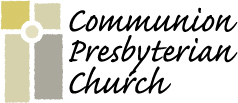 |
Worship
Service | Newsletter | GIFT
groups | Leadership | ARP | Membership | History | Mission | Readings | Links | Family | Contact
|
Scripture |
||
Let’s
be honest right up front -- You need faith to believe in the
Bible! INTERPRETATION Jesus was asked plenty of questions, and at the end of the day, he always came back to endorsing the Scriptures as his final authority for life. Furthermore, after his resurrection, he commissioned the Apostles to speak with the force of Scripture about the truth of the Gospel; "All authority in heaven and on earth has been given to me. Go therefore and make disciples of all nations…” (Matthew 28). So as a church, we regard the Scriptures as the FINAL AUTHORITY for our “Faith” and “Practice.” Our “Faith” tells us what we are required to believe, and our “Practice” must reflect proper worship, service, and living before God and man. We will believe what the Bible teaches, even if our society says that we must believe something else -- that's faith. Here’s the rub: Anyone can tell you what the Bible “says.” But we seem to have the toughest time agreeing on what it “means.” Clearly, the sentence structure of the Hebrew and Greek language is understandable, interpretable, and subject to consistent rules. But getting two Christians of differing denominations to agree on what a passage actually means, says something about “another authority.” (Here is the place to speak about the pneumatalogical nature of the Scriptures, but that opens another stream of thought -- I'm going to bypass that here.) It’s the old Supreme Court example. Those justices are all looking at the same Constitution, but coming up with different ways in which it should be interpreted and legislated. When a potential justice is interviewed by the Senate, they are asked, “What do you think about abortion? What do you think about eminent domain?” "Why?" Because everyone has an agenda, and those in the Senate with their own agenda are trying to preserve their world view through the court. Both judges and the people who interview them seem to have a prior commitment to some agenda. Here’s our agenda: We believe that the Bible is the infallible Word of God, without error in all it teaches. Do you need help in interpreting this? Here are some random belief’s
we have about what the bible teaches: Now depending on who you are, and for what you are looking -- those sentences are completely satisfying, or a major "cop-out." Each of those previous statements require more information...they are open to "interpretation." Therefore, to say that we teach "the Bible" really doesn’t say too much (accept that bringing a Quran to our church won’t help with understanding the sermon). So we also must point to a "tradition" that captures the stream of how we interpret the Bible. It’s an historical project -- we are looking for an historic "stream of interpretation." So, we will cite luminaries like Augustine, Luther, Calvin, Knox, Erskine, and others. We will cite the Creeds and Confessions of the church like the Apostle’s, Nicene, Athanasian, and Westminster. Are these men and these creeds more authoritative than the Bible? No, NO, NO! But they establish an agreeable standard for what we believe the Bible teaches, and how it should be interpreted. Sort of like case law for the Supreme Court. Application: Today, there are denominations who believe things that we as a church (and denomination) can’t support in light of Scripture. One hot button: Churches that permit practicing homosexuals to become pastors. We must say, "No" to this. Why? Because the Scriptures call this lifestyle a grave sin (1 Cor. 6:9, 10; 1 Tim. 1:9-11) and a lifestyle of which Christians are supposed to repent and leave (Eph 4:17-5:5). Some “theologians” with an “agenda” have become “authorities” and have written books, papers, and treatises as to why today's homosexuality is something different than what is referenced in the scriptures. SO, in whom should we believe and place our faith? A more traditional agenda based upon an historic interpretation of the Scripture, OR, a modern, progressive agenda based upon a contemporary interpretation of the Scripture? This is a HUGE question because during the time of Martin Luther – He was branded as the “modern, progressive” objecting to the long held tradition of the Roman Catholic church (Couldn’t we say the same thing even about Jesus in his context before the Pharisees?) So out of love for the Scriptures, and not debate, let us actually follow a defined trail to help us interpret what the Bible actually says! At the end of the day, we must rest upon the agenda of viewing the Bible as the FINAL authority on issues related to faith and practice; accepting it in its plainly spoken fashion, filtering it through the fulfilling life of Jesus, and further reflecting the authoritative voice of the Apostles whom Christ commissioned. From this vantage point, we say that our faith rests on Scripture Alone! To best interpret what that means, we follow the reasoning of the Protestant Reformed tradition. So much more to say. But we would love to hear from you too. Research more at: http://www.monergism.com/thethreshold/articles/topic/scripture.html God bless. |
The Bible claims to be an authority on the most important thing in life – truth.
Where should you place your faith? The Bible, or man’s opinion?
Some people claim that the Bible is “an” authority, but would prefer to make it equal among “other” authorities.
We will believe what the Bible teaches, even if our society says that we must believe something else -- that's faith.
Here’s our agenda: We believe that the Bible is the Word of God, without error in all it teaches.
From this vantage point, we say that our faith rests on Scripture Alone! |
| ©2009 Communion Presbyterian Church. All Rights Reserved. |


